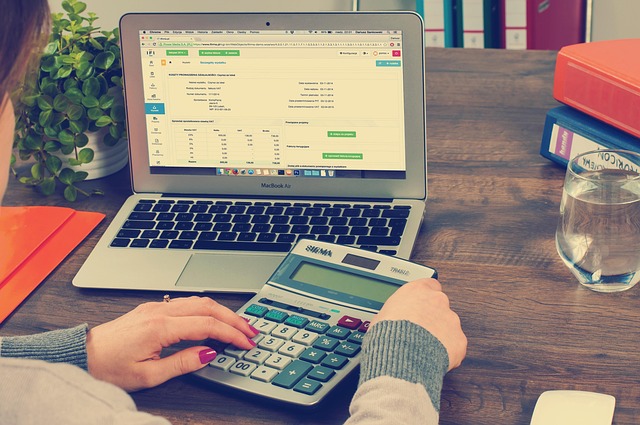Tax season can be a daunting time, and it’s easy to fall prey to common errors that can cost you money, incur penalties, or even trigger an HMRC investigation. Avoiding these pitfalls is crucial for a smooth tax experience and to ensure you only pay what you legitimately owe. Here are some of the biggest mistakes people make with their taxes:
Forewarned Is Forearmed!

1. Missing Deadlines
This is perhaps the most straightforward yet common mistake. Whether it’s registering for Self Assessment, filing your tax return, or paying your tax bill, missing a deadline almost invariably leads to penalties and interest. For Self Assessment in the UK, the online filing deadline is usually 31 January following the end of the tax year, with paper returns due earlier, by 31 October. Payments on account are also due on 31 January and 31 July. Setting reminders and preparing well in advance can help you avoid these costly oversights.
2. Not Declaring All Income
Many people overlook certain sources of income, leading to an inaccurate tax return. This isn’t always intentional tax evasion; sometimes it’s simply a lack of awareness. Common omissions include:
- Bank interest: Even small amounts of interest from savings accounts are taxable.
- Rental income: If you rent out a property, whether a long-term let or a holiday let, this income must be declared.
- Income from side hustles or casual work: Money earned from freelancing, gig economy jobs, or even selling items online (above a certain threshold) is taxable.
- Foreign income and investments: Any income from overseas sources must be reported.
- Dividends and other investment income: Profits from shares or investments are subject to tax.
HMRC has increasingly sophisticated ways of tracking various income streams, so it’s always best to be transparent.
3. Incorrectly Claiming Expenses and Deductions
While it’s important to claim all eligible expenses to reduce your tax bill, claiming expenses you’re not entitled to is a significant mistake. The golden rule for business expenses, especially for the self-employed, is that they must be incurred “wholly and exclusively” for business purposes. Common errors include:
- Mixing personal and business expenses: Attempting to claim personal shopping, commuting costs, or general clothing as business expenses.
- Lack of record-keeping: Not retaining receipts, invoices, and other documentation to support your claims. HMRC can request proof for up to six years.
- Overlooking legitimate deductions: On the flip side, many taxpayers miss out on deductions they are entitled to, such as pension contributions, Gift Aid donations, professional subscriptions, or the working-from-home allowance.
Familiarise yourself with HMRC’s guidelines for allowable expenses in your specific circumstances.
4. Mathematical Errors and Incomplete Information
Simple calculation mistakes, data entry errors, or leaving sections blank on your tax return can cause delays and lead to incorrect tax assessments. Double-checking all figures, especially Unique Taxpayer Reference (UTR) and National Insurance numbers, is essential. Providing “to be confirmed” or “info to follow” is not acceptable to HMRC.
5. Not Reviewing Your Tax Code
For employed individuals, your tax code dictates how much tax is deducted from your salary or pension through PAYE. An incorrect tax code can lead to overpaying or underpaying tax throughout the year. It’s advisable to check your tax code annually against your income and allowances to ensure it’s accurate.
6. Failure to Plan for Payments on Account
If you are self-employed, you usually make two “payments on account” towards your next year’s tax bill, due on 31 January and 31 July. Forgetting to factor these into your budget can lead to a nasty surprise and cash flow problems.
How to Avoid These Mistakes:
- Keep meticulous records: Maintain organised records of all income and expenses throughout the year. Digital solutions can simplify this.
- Understand your tax obligations: Be clear on what income needs to be declared and what expenses you can legitimately claim.
- Plan ahead: Don’t leave your tax return to the last minute. This allows time for gathering information and seeking advice.
- Utilise all allowances and reliefs: Research and ensure you are claiming every tax-free allowance and relief you are entitled to, such as ISA allowances, pension contributions, and marriage allowance (if applicable).
- Consider professional advice: If your tax affairs are complex, or you’re unsure about any aspect, hiring a qualified accountant can save you time, stress, and potential penalties. They can ensure accuracy and help you optimise your tax position.
- Act promptly if you make a mistake: If you realise you’ve made an error, contact HMRC as soon as possible. You generally have 12 months from the filing deadline to amend your Self Assessment tax return. Coming forward voluntarily is often viewed more favourably by HMRC and can reduce potential penalties.
By being proactive and diligent, you can navigate the tax landscape confidently and avoid these common, yet costly, mistakes. If you require any help with your tax affairs please give our team a call on 028 3752 2909.
Leave a Reply
You must be logged in to post a comment.